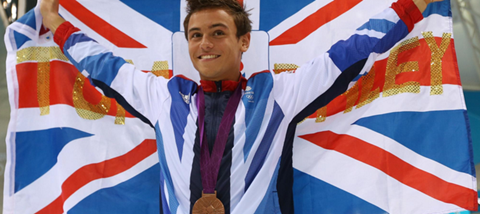
What a joy the 2016 Olympics have been. Heroes new and old have thrilled and delighted British viewers, who have seen Team GB collect more medals than at any other away Olympics. After having loved the 2012 Olympics, Mouse has found this year’s event to be almost every bit as wonderful, even if it isn’t in his back yard.
And then, among it all, all there has been a discussion about how National Lottery funding has helped so many talented youngsters to become world beaters. And Mouse started to wonder - is it actually worth the cost?
£13m per gold
The funding provided to the top 1,300 or so elite athletes on UK Sport’s World Class Programme is truly eye watering. After winning just a single gold medal in 1996, the UK government and sporting authorities decided that the measly £5m annual funding provided to elite athletes simply wasn’t enough to compete on the world stage. By the Sydney Olympics, funding via the National Lottery increased to £59m over the Olympic cycle of four years, yielding a respectable 28 medals. For the Rio cycle, funding has rocketed to £275m, and a further £75m for Paralympians. Even more than was spent in the run up to the London 2012 games.
The return on that so far looks to be around one medal for £4m spent. Or £13m per gold, if you’re only interested in coming first.
When the National Lottery was founded in 1994, Parliament required that 28% of the proceeds be distributed to “Good Causes”, with sport being allocated 20% of that pot. Most of us imagined community clubs being revived, local swimming pools refurbished and schools being properly equipped for sport. Now increasing proportions of that fund are being spent on providing world class training, equipment and facilities to a tiny number of elite athletes.
The 'greater take-up of sport' myth
Some have argued that this is worthwhile, as Olympic success is inspiring greater take-up of sports. However, when Sport England published the latest results of their sports participation survey, they found that for the third year running, they were heading in the wrong direction.
The funding provided to the top 1,300 or so elite athletes on UK Sport’s World Class Programme is truly eye watering
Despite £21m being poured into elite swimming since 2012, almost a million fewer people regularly swim compared with a decade ago. Even tennis has lower participation now than 10 years ago. Two-time Wimbledon Champion and double Olympic gold medalist Andy Murray doesn’t seem to be inspiring any more people to pick up a racket than Tim Henman, who ten years ago lost in the second round of Wimbledon to Dmitri Tursunov.
“I am very disappointed by these numbers,” said Minister for Sport, Tracey Crouch. “A significant amount of public funding has been invested in sport in the last decade but the results simply aren’t good enough. It’s time for a change. The recent downward trend in participation has demonstrated that the current approach has had its day. It’s not the return we expect to see for a large investment of public money.”
Where your treasure is...
Christians must surely question whether an ever increasing sum of money should be taken out of the “good causes” pot and given to elite sports in order to see Team GB rise in the medal table above countries with far larger populations.
Jesus had a lot to say about our attitudes to money and Christians must consider this annual expenditure, equivalent to two or three average sized hospitals every Olympics, very carefully. And most important, we must consider our motives. Do we invest in elite sport because we want to inspire our kids to take part in sport? If so, it isn’t working. Or do we have other motives – nationalistic pride, as we bask in the reflected glory of the victors? Greed even, as we hunger for more medals?
This Mouse can’t help feeling that we’ve gone a bit too far. Christ told us that where our treasure is, there our heart shall be also. We are investing in building up a national treasure trove of gold medals. Liz Nichols, Chief Executive of UK Sport, put the current approach concisely on BBC Newsnight recently, saying “We invest in medal success”. Mouse can’t help feeling that this is the wrong objective.
Instead Mouse proposes the motion for a less successful Team GB and a debate about where we want to put our treasure.
The Church Mouse is an award winning blogger who tweets at @thechurchmouse
Click here to request a free copy of Premier Christianity magazine





























